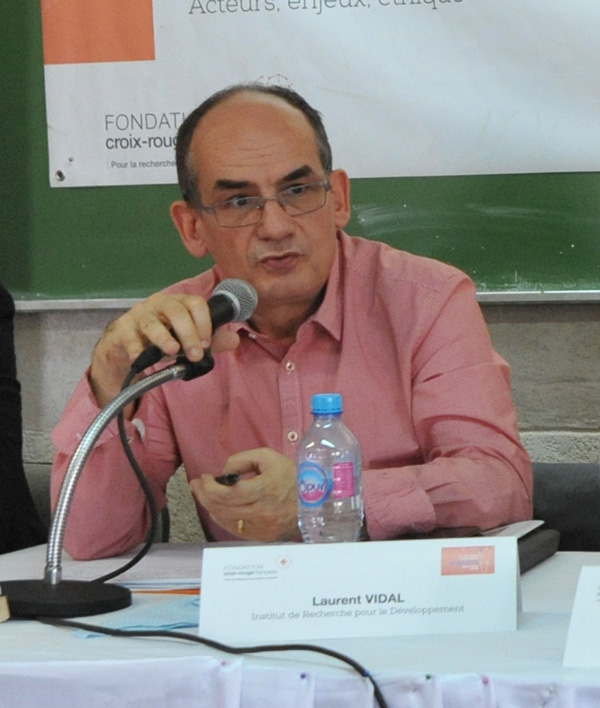Scientists, tasked with clarifying political decisions, have been placed centre stage by the Covid-19 crisis. Solutions are being sought from medicine, biology and epidemiology… but also the humanities. Laurent Vidal, an anthropologist and head of research at the IRD (Institut de recherche pour le développement), recalls the key role of the humanities in the treatment of epidemics, especially in Africa, and considers what this epidemic has revealed about our representations of the continent.
What role do the humanities play in the management of a health crisis like Covid-19?

Laurent Vidal: For a long time, perhaps since the first Ebola epidemics in the 1970s, the humanities have been called upon and made available to doctors in order to respond to epidemics. Above all, it is a question of understanding populations’ reactions not only to the epidemic, but also to the actions of care workers. During the Ebola crisis, anthropologists went to the frontlines as mediators and played a role in diffusing the hostility of populations with regard to interventions by humanitarian workers, who were sometimes accused of propagating the disease. This work gave rise to general analyses and concrete proposals. For example, doctors considered the manipulation of bodies in the context of rituals preceding burial to be a major risk of transmission. Anthropologists contributed to suggesting a new version of the ritual which was compatible with both cultural codes and health regulations.
In the case of Covid-19 in France, the same logic explains the presence of Laëtitia Atlani Duault (a research anthropologist at the IRD, and member of the Foundation’s Scientific Council) amongst the members of the Scientific Committee established by Emmanuel Macron. Social risks linked to health decisions needed to be evaluated in order to avoid misunderstandings, shed light on contexts and, for example, predict the psychological effects of lockdown or prevent the escalation of domestic violence.
In an opinion piece published in Le Monde, alongside other researchers, you regret the fact that the Covid-19 crisis has become another opportunity to perpetuate doom-mongering about Africa. What is your analysis?
LV: A number of commentators were quick to predict a disaster in Africa. This narrative was unequivocally based on a series of negative arguments combining the weakness of the health systems, living conditions, promiscuity… And yet other elements, which effectively counterbalanced these risk factors, were irrationally overlooked: the youthful population and the first statistics that reported a controlled mortality rate. The doomsday narrative casts Africa in a globalising perspective where, inevitably, things will go wrong. Yet the situation is different from one country to another. Moreover, with due caution and without second-guessing future developments, the predicted disaster has not come to pass. Better still, African states have taken swift and judicious action. Mali closed its borders before the first official case. African countries availed themselves rationally of the WHO toolkit. They did not act, as many had suggested, in mere mimicry of Western countries. Faced with a very different hierarchy of risks, they quickly abandoned the lockdown strategy, which was a social time bomb, and arbitrated between health and socio-economic risks. Up until now, this has worked well, and the resistance to the epidemic has taken on a symbolic character, a source of pride for states and for their populations.
Does this alarmist rhetoric not have its uses, though, in terms of mobilising opinion in the face of risk?
LV: I’m not saying that the rhetoric is ill-intentioned. It is sometimes linked to goodwill and compassion, but also to a kind of neo-paternalism. Africa, seen from on high, necessarily needs us, the West. This narrative can serve the interests of certain states and organisations. By painting a gloomier picture of the situation than is warranted, and by playing on fear, these commentators may have felt they would produce an electroshock so that Africa would not be forgotten. It will incidentally be interesting to see how the debate evolves with regard to access to a potential vaccine. But doom-mongering is a double-edged sword. I would prefer it if commentators based their analyses on scientific facts rather than on projections. In this respect, and despite the promotion of a Scientific Committee in France, I am not sure that the Covid-19 crisis has been much of a triumph for rationality.
Photo above: @IFRC





